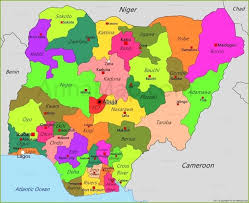A huge trade deficit, a decline in foreign direct investments as well as in remittances was the hallmark of Nigeria’s current account in the first quarter of the year to stand at a deficit of $1.75 billion. Balance of Payment (BOP) is a statement that records all the international monetary transactions made between residents of a country and the rest of the world during any given period. It is ideal in measuring whether a country has a surplus or deficit of funds. Nigeria has recorded a current account BoP deficit continuously for 9 consecutive quarters, since Q1 2019, summing up to a deficit of $33.35 billion in a little over two years. This could be largely attributed to a massive gap in Nigeria’s trade balance.
According to the National Bureau of Statistics report “The All commodity group import index increased by 0.82% between January and March, 2021. This was driven mainly by an increase in the prices of Mineral products (1.53%), Live animals; animal products (1.38%) and Animal and Vegetable fats and oils and other Cleavage products (1.24%). However, the index was negatively affected by declines in the prices of products of the chemical and Allies industries (-0.36%) as well as Wood and articles of wood, wood charcoal and articles (-0.29%).
“Between January and February 2021, the All commodity group import price index increased by 0.75%. This was driven by increases in the import prices of Animal and Vegetable fats and oils and other Cleavage (1.77%), Mineral Products (1.63%) and Live animals; animal products (1.37%). The increase was, however, offset by decline in the price of Products of the Chemical and Allied industries (-0.73%) and Wood and articles of wood, wood charcoal and articles (-0.58). Between February and March, 2021, the All commodity group import index grew by 0.07%, driven by increase in the prices of Base metals and articles of Base metals (0.51%), Boilers, Machinery and Appliances (0.50%) etc. The index was negatively affected by decline in the prices of Animal and vegetable fats and oils and other cleavage (-0.54%), prepared foodstuffs; beverages, spirits and Vinegar (-0.34%) and Plastic rubber and articles thereof (-0.19%).
The All commodity group export index rose by 0.31% between January and March, 2021. This was due to increases in the prices of Live animals; Animal product (2.26%), Vegetable products (2.09%) as well as Animal and Vegetable fats and oil (1.47%). Between January and February, 2021 the All commodity export price index rose by 0.92% as a result of marginal increases in the prices of prepared foodstuffs; beverages, spirits and Vinegar; tobacco (1.30$%), wood and Articles of wood, wood charcoal and Articles (0.95%), Vehicles, aircraft and parts (0.94%), Base metals and articles (0.94%) etc”
The current figure represents the lowest deficit recorded since Q1 2019, which signifies that Nigeria’s net current account could enter into positive territories. Net current account declined from a deficit of $5.26 billion recorded in Q4 2020 to a deficit of $1.75 billion in Q1 2021. Goods export decreased by 8.6% (QoQ) from $8.44 billion recorded in Q4 2020 to $7.71 billion in Q1 2021. Net financial account surged to $7.87 billion in Q1 2021, from a deficit of $3.37 billion recorded in the previous quarter. Net errors and omissions stood at -$6.14 billion in Q1 2021 from $8.64 billion recorded in the prior period. Foreign receipt from services stood at $1.19 billion in the review period while Nigeria’s services payment stood at $4.09 billion, indicating a current account service deficit of $2.9 billion.
Nigeria’s current account deficit is largely fueled by a huge dependence on the importation of foreign items, while our major source of export earnings is crude oil, which is highly volatile and currently affected by the cut in OPEC production quota. Recall, that Nigeria recorded its highest trade deficit on record in Q1 2021, due to a significant surge in its import bill. Notably, Nigeria’s imports in the first quarter skyrocketed by 54% year-on-year to N6.85 trillion, leading to a trade deficit of N3.94 trillion. The state of the economy has also dampened investors’ sentiments towards investing in Nigeria, with galloping inflation, negative returns at the local bourse, insecurity in most areas of the country, unfriendly business environment, and a host of other policies that further pushed Nigerians into poverty. These have caused a significant decline in foreign inflows, while diaspora remittances have also dipped significantly, which has depleted our foreign reserves to a record low, putting pressure on the local currency.

